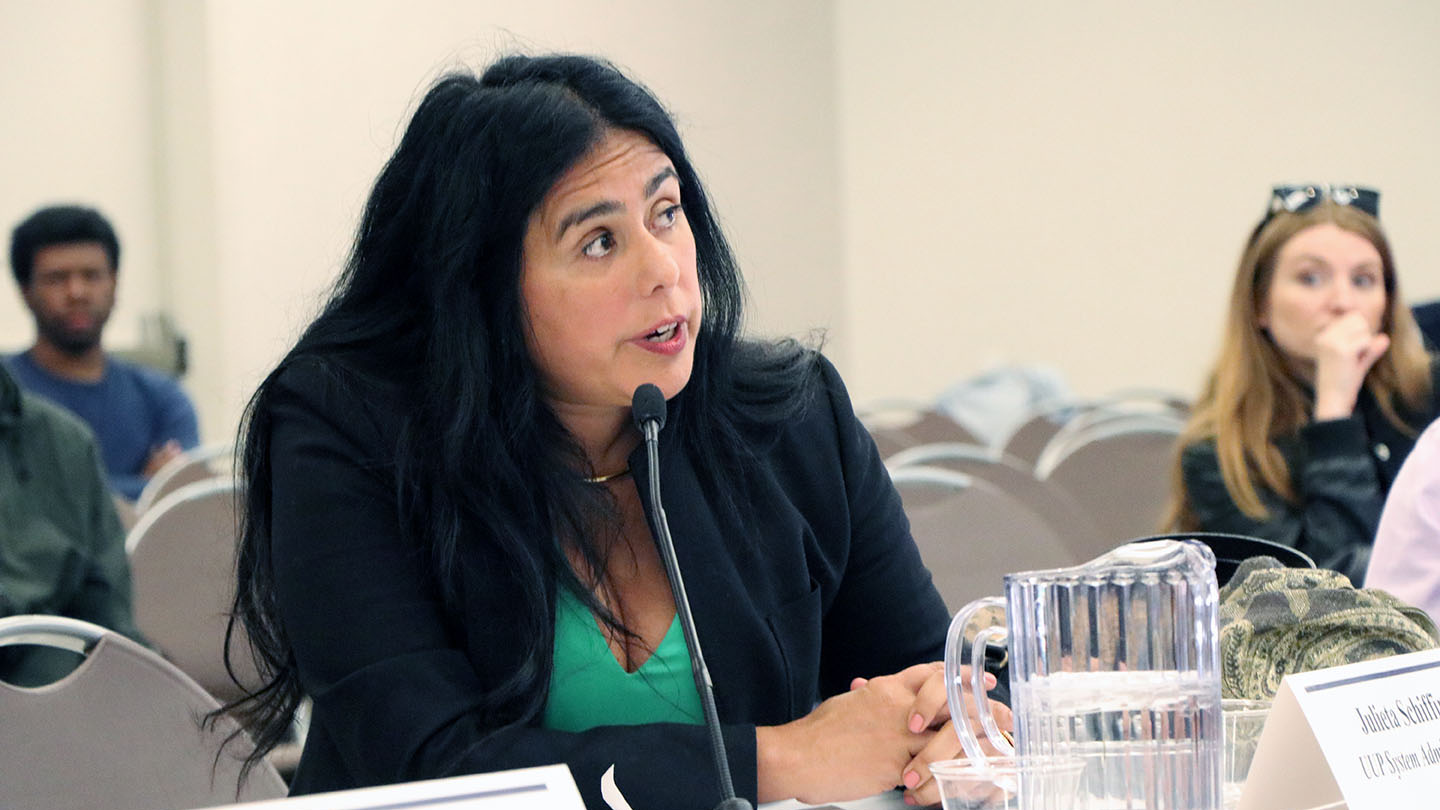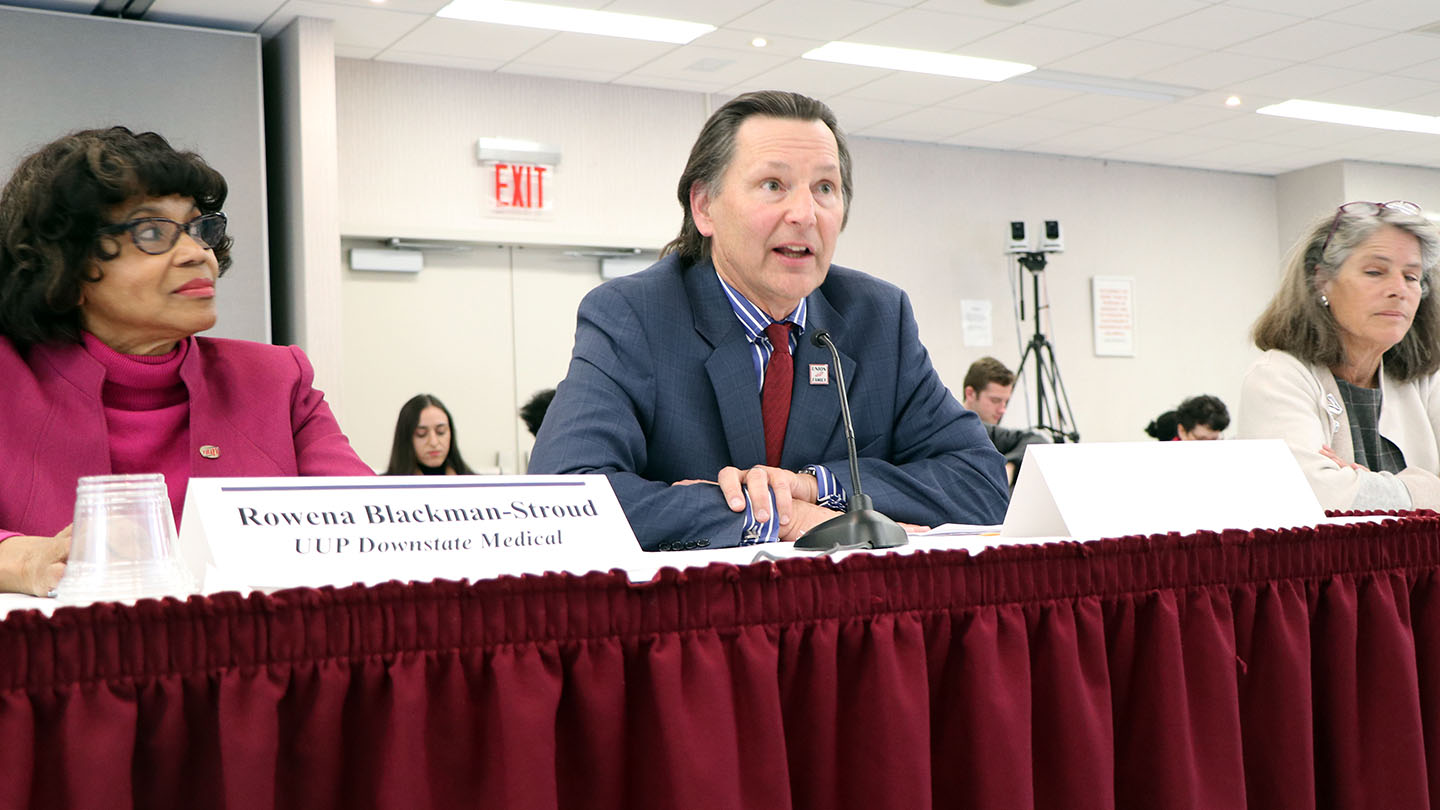October 24, 2019

After UUP President Fred Kowal urged the Senate Standing Committee on Higher Education to close the TAP gap and increase state funding to SUNY, Sen. Toby Stavisky nodded her head.
“We’re all in this together, and we’re all fighting,” Stavisky said.
Kowal, Downstate Medical Center Chapter President Rowena Blackman-Stroud, and System Administration Chapter member Julieta Schiffino testified Oct. 24 at a hearing on public higher education held by the state Senate Standing Committee on Higher Education.
The hearing was the first in a series held across the state in October and November. The hearings examined the cost of public higher education in New York state and its impact on student financial aid programs, student debt, and affordability and accessibility. A Dec. 11 hearing is set at UAlbany.
More than 250 people, many of them CUNY students, were at the hearing, held at Brooklyn College. Speakers represented CUNY, the Professional Staff Congress, NYPIRG, the CUNY University Faculty Senate, and Kingsborough Community College also addressed legislators.

Kowal, above, implored legislators to increase state funding for SUNY, which has had to deal with nearly a decade of flat budgets. The University has never recovered from a series of scathing Great Recession cuts that sliced state funding to SUNY by nearly half.
He also called on lawmakers to close the so-called TAP gap, the growing difference between state funding for the Tuition Assistance Program for students and the actual cost of tuition. That gap has grown to about $70 million, funds that SUNY campuses are responsible for. The initiative is part of UUP’s legislative agenda for 2020-21.
Kowal called SUNY’s three public teaching hospitals “the people’s hospitals” as he explained the importance of restoring an $87 million subsidy for the hospitals that was cut last year. The hospitals use the state subsidy to fund their medical schools and heath care-related costs.
“Please continue to support the work that we do at these facilities,” said Kowal.
Schiffino, top, the associate director of Financial Aid Services at the SUNY Welcome Center in New York City, said that funding cuts have reduced staffing at the center to two admission advisors; the center doesn’t have a financial aid advisor.
“Many of us work longer hours, not knowing if we will be compensated for our time,” she said. “We do not have enough computers or laptops to help students. There are a growing number of first-generation students applying to college; they need more support, not less.”

